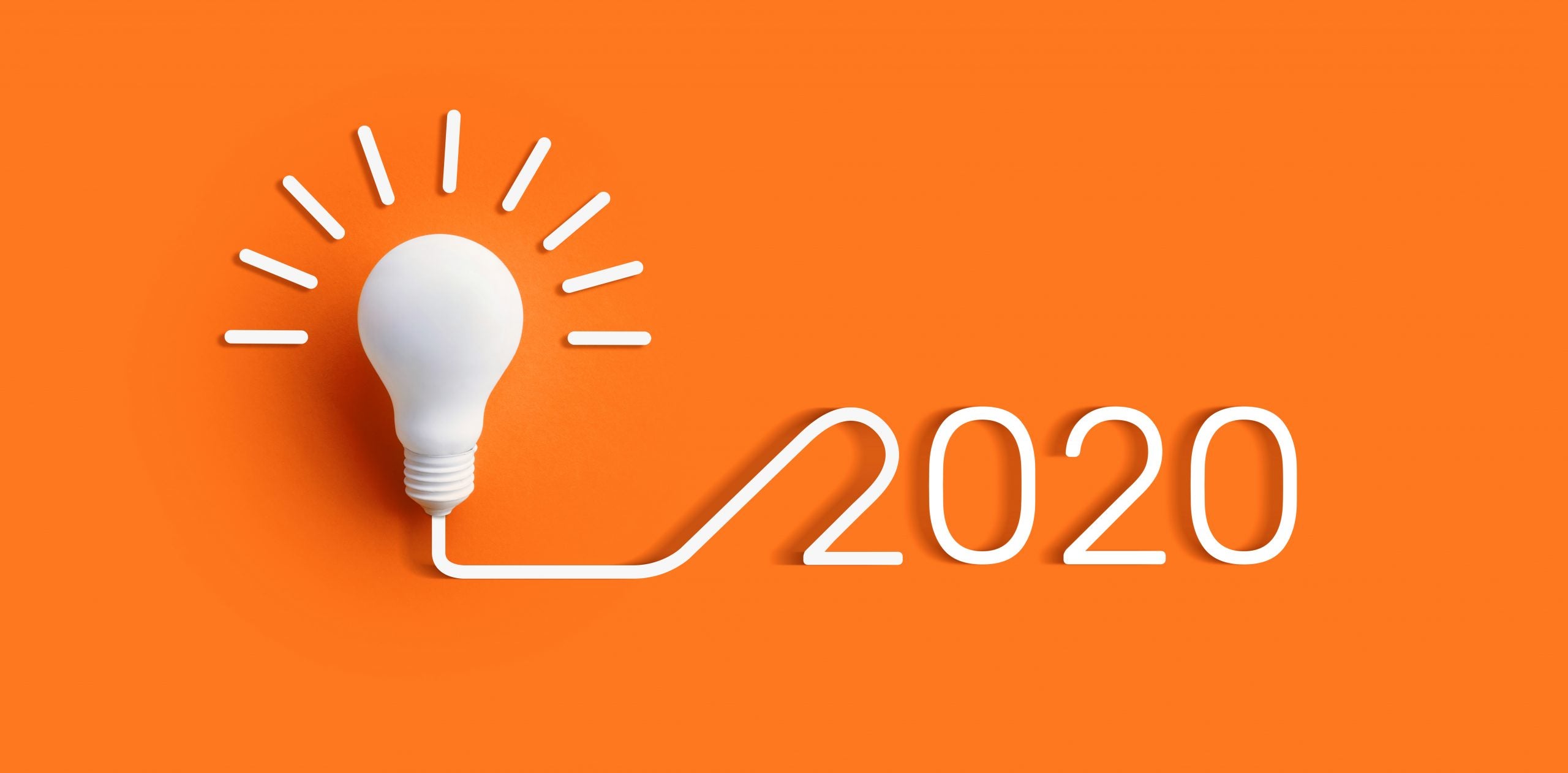Regulatory pressure is increasing. Companies that fell short of expectations in the last few years have seen their brands take reputational hits, experienced loss of market access, and watched profitability shrink due to failures to identify and address risks. It’s a new year, and in 2020, companies will need to stay focused and commit appropriate resources to ensure they can manage upcoming regulatory changes.
To help you keep pace with expanding requirements, we recommend you focus your energy on the following key topics in the areas of product compliance, vendor management and corporate social responsibility.
Product Compliance
SCIP Database Implementation & Enforcement
While the submission deadline for the Substances of Concern In articles as such or in complex objects (Products) (SCIP) database is January 5, 2021, companies will need to spend a significant amount of time throughout 2020 preparing for this deadline.
To maintain European Union (EU) market access, companies operating or selling into this region will need to be able to provide granular product details, including Substances of Very High Concern (SVHCs) concentration ranges and data concerning where they are found in the product. Submissions will need to be created for every article at every level of manufacture, meaning producers, assemblers, importers and distributors are all responsible for collecting data and reporting to the SCIP database.
Companies can also expect more information about what enforcement or delegation acts will result from non-compliance around July of 2020.
REACH Regulation Expansion
Several changes to the Registration, Evaluation, Authorisation and Restriction of Chemicals (REACH) Regulation will increase data requirements. By January 1, 2020, companies were required to provide more information about nanomaterials, which are “…chemical substances or materials with particle sizes between 1 to 100 nanometres in at least one dimension,” and may pose a risk to human health and the environment due to their size.
Additionally, 14 new substances are proposed to be evaluated in 2020 (with 60 more to be evaluated over the following two years). The European Chemicals Agency (ECHA) recommends registrants of the listed substances should develop an action plan and contact the evaluating member state, while downstream users should review available information and share it with registrants. Relevant dossier updates will need to be made before March of 2020.
EU MDR
The EU Medical Device Regulation (MDR) is set to replace the Medical Devices Directive (MDD) on May 26, 2020. The scope and requirements of EU MDR are very different from the MDD, so companies will need to do a considerable amount of work to demonstrate compliance before the deadline.
Section 10.4 of the regulation requires companies to identify whether any of more than 1,000 carcinogenic, mutagenic, endocrine disrupting or reproduction disrupting substances exist in their products. Even for companies with modest part lists, this will be a massive undertaking.
Companies that supply non-medical device components to medical device companies should also be prepared for a surge of product composition inquiries from their customers.
UAE RoHS Directive
Once the category 11 deadline passes in January of 2020, the United Arab Emirates (UAE)’s version of the Restriction of Hazardous Substances (RoHS) Directive will no longer recognize the CE marking. Instead, producers must obtain a UAE conformity certificate in order to place their products on the market. In addition to this new certificate rule, the restriction of four new phthalates came into effect January 1, 2020. These are as follows:
- Bis(2-Ethylhexyl) phthalate (DEHP) — 0.1%
- Benzyl butyl phthalate (BBP) — 0.1%
- Dibutyl phthalate (DBP) — 0.1%
- Diisobutyl phthalate (DIBP) — 0.1%
EAEU RoHS
Under the Eurasian Economic Union (EAEU) version of the RoHS Directive, companies are required to demonstrate conformity by March 1, 2020. This means companies selling electrotechnical and radio electronic in Russia, Belarus, Armenia, Kyrgyzstan and Kazakhstan must limit the content of the following six substances in their products:
- Lead — 0.1%
- Cadmium — 0.01%
- Mercury — 0.1%
- Hexavalent chrome — 0.1%
- Polybrominated biphenyl — 0.1%
- Polybrominated diphenyl ether — 0.1%
China RoHS Directive
In China, the government has formally approved RoHS guidelines, which can be used in addition to conformity rules to perform risk assessments, prepare supporting documentation, evaluate conformity, prepare declarations of conformity and maintain evaluation results. These guidelines will be implemented on March 1, 2020.
Vendor Management
U.S. Trade Dispute With China
The ongoing trade dispute between the U.S. and China will continue to cost billions of dollars in tariffs in 2020. In December 2019, U.S. President Donald Trump agreed to a “Phase One” deal to reduce some U.S. tariffs in exchange for more Chinese purchases of American products and strengthened protection of U.S intellectual property.
However, it is unlikely Chinese demand is sufficient to meet the volume of American products outlined in the deal. At best, the “Phase One” deal appears to be a temporary reprieve, but more will be learned in the coming months.
Implementation & Impacts of the USMCA
In 2020, the United States-Mexico-Canada Agreement (USMCA) will replace the North American Free Trade Agreement (NAFTA). Under this new agreement, North American companies can expect several changes to their data collection and reporting processes.
The automotive industry will be most impacted by these changes, requiring companies to pay more attention to country of origin and labor practices. For example, new sourcing rules increase the required amount of North American made parts from 62.5 percent to 75 percent, and new labor rules require 40–45 percent of automotive content be made by workers earning at least $16 USD per hour.
The new trade landscape is expected to result in higher costs that will need to be re-optimized within the supply chain. This will likely come in the form of shifting manufacturing locations within North America. Highly enforceable labor and environmental protection rules also mean companies in all industries need to ensure adequate oversight of their North American facilities and suppliers to meet these standards.
Brexit
In 2019, Prime Minister Boris Johnson’s Conservative Party won an 80 seat majority in the UK’s general election. This comfortable majority will make it easier for Johnson to pass his European Union (EU) (Withdrawal Agreement) Bill and fulfill his promise to leave the EU before the January 31, 2020, deadline.
The Withdrawal Agreement bans the UK government from extending their transition period — the period in which the UK is no longer part of the EU, but will continue to follow many of its rules — beyond 2020. While Johnson is confident that a trade deal can be put in place by the end of the year, critics insist the timetable is unrealistic.
To adapt to potentially major changes in regulatory requirements and costs to importing/exporting goods, companies with operations in the UK or leveraging the UK as a point of entry to the EU will need to stay informed of these changes as they unfold.
Sanctions
In 2020, American companies will need to pay greater attention to their business partners and be particularly careful to ensure their products do not violate sanctions. The U.S. Treasury Department’s Office of Foreign Assets Control (OFAC) handed out an unprecedented number of enforcement actions in 2019, including nearly 1.3 billion USD in financial penalties. This trend is expected to continue into 2020.
To help companies comply with sanctions, OFAC created a set of 23 compliance commitments that are now a standard part of settlement agreements. Companies that want to avoid penalties can proactively follow the framework and should emphasize a systematic, process-driven approach to both internal and supplier/customer due diligence efforts.
Corporate Social Responsibility
Modern Slavery Requirements
Each year, reports show human trafficking and forced labor continue to be prevelent in global supply chains. Approximately 10,000 people must be removed daily from the global victim population to eradicate modern slavery by 2030, showing the sheer scale of those impacted by human rights abuses. In response, the push to regulate supply chain due diligence is on the rise around the globe, as is associated enforcement. While legal developments are expected to be significant, existing laws and requirements are expected to make the biggest impact in 2020.
There are a few items to watch:
- Businesses losing U.S. market access due to ongoing enforcement of the Trade Facilitation and Trade Enforcement Act.
- Increasing withhold release orders.
- Roll out of mandatory processes and procedures in the UK to ensure adequate mitigation of modern slavery risks.
- Increased scrutiny of supply chain due diligence resulting from the Australia Modern Slavery Act of 2018 and UK Modern Slavery Act of 2015.
- Growing complaints issued under the Trafficking Victims Protection Reauthorization Act, including a high-profile complaint against major tech players based on reported activity in the Democratic Republic of the Congo.
Responsible Minerals/Conflict Minerals
The EU Conflict Mineral Regulation will come into full force on January 1, 2021. In the meantime, companies must focus on collecting the necessary data and demonstrating due diligence in 2020. The EU regulation’s focus will be global, which means companies will need to have better visibility into material sources of origin and be able to demonstrate a process to effectively gather and report this information.
Cobalt was the first mineral that industries voluntarily reported. As industry pressure continues to build, cobalt reporting will be more often requested by customers. Business-to-business companies should focus on collecting this data in 2020, ahead of iminent requests if they have not already.
Companies can start by conducting a materiality assessment of their cobalt use in products. Even those companies without products containing cobalt but with existing responsible minerals programs should, at minimum, include the results of their assessment in their public responsible minerals statement. This will demonstrate commitment to addressing the issue and transparency.
To learn more about how your company can build a robust supply chain data management program for any data type, contact us today.









